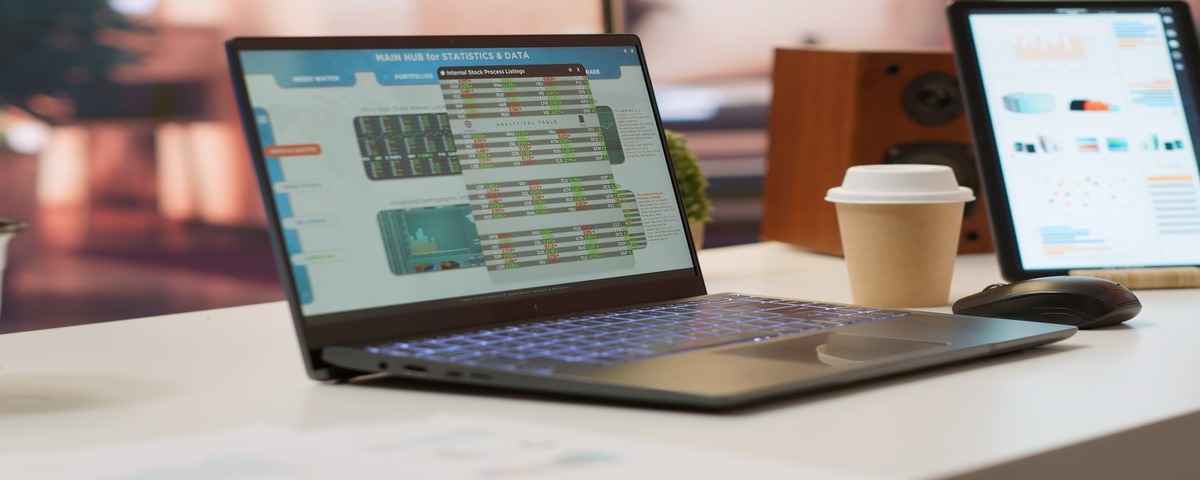Choosing the right accounting software can have a massive impact on the wellbeing of your business. From making sure you remain compliant to maximising business efficiency, accounting software is great at streamlining financial processes resulting in greater accuracy.
While some may view accounting software as an unnecessary added cost, it is in fact proven to be an investment worth making. In the long run, it can save you not only money, but time as well. How come? Some software has features that allow it to generate VAT payments and VAT invoices, for example, which means you don’t have to trawl through mountains of data yourself. It’s a win-win!
When it comes to accounting software comparisons, the range of options out there sometimes makes it hard to choose. It’s important that you take time to think about this decision and consider a number of factors before committing. After all, it’s all about making your business flourish and what might suit another company won’t necessarily suit yours. You need to find the right features of accounting software to suit you.
Sounds a little overwhelming? Not to worry, we have your back!
We’ve designed this blog to help you identify your top priorities so that you can feel fully informed and well-equipped to assess the various software options available to you.
Step 1 – Assess Your Business Needs
The first thing you should be doing is assessing your business needs and that means identifying the size and type of your business. Whether you’re a sole proprietorship, a partnership, or a corporation, nailing this down is the first step to take. The size and type of your business will directly affect the software you opt for so, it’s a good idea to be specific.
Secondly, you should be having a think about your unique accounting needs. Remember, this software is all about reducing the tasks piling up on your desk and essentially making your life easier. What does that look like? For some, it’s taking care of invoicing. For others, the top priority could be payroll or inventory management. Try to identify the key areas your business needs help in and match this up with what the software has to offer. More often than not, it’s the tasks that’re the most time-consuming that accounting software can help alleviate.
The best accounting software for small businesses offer features that reduce the amount of manual bookkeeping and accounting tasks you have to do. Instead of manually entering and altering data in various spreadsheets to review transactions, accounting software can automatically generate data for you and even create reports. Another great benefit? All your financial data is synced across multiple platforms meaning you can pull together complete financial records quicker.
Step 2 – Look Out for Key Features
Ease of Use
Simple though it is, this tick box can often be overlooked when researching software as people are keen to delve into bigger and shinier features. The bottom line is no matter how great the software, if it isn’t straightforward to use then it’s no good. Our top tip? Look out for a user-friendly interface with intuitive navigation. The last thing you should be doing after forking out for software is spending the extra hours you just gained working out how to use said software!
Scalability
An ability to grow with your business is pretty important. Accounting software that is scalable means it can easily adapt to meet the specific requirements of your business. Essentially, if you grow, it has the capacity to grow with you and still ensure your financial management systems remain up to date and fully functional.
Integration
The best software options are the ones that allow for seamless integration of various tools into one system. This will make your life easier as data across several platforms becomes synchronised. If this tickles your fancy, look out for compatibility with tools and software such as CRM and payroll systems.
Automation
Features that automate routine tasks can be one of the biggest time savers. Whether that’s generating key financial reports, recurring invoices, or automated tax calculations, giving these tasks over to your software frees up your time. Now you can focus on other elements of your business.
Reporting and Analytics
Aka customisable reports and real-time data insights. Once all your accounts are correctly set up, accounting software can track your transactions and expenses using real-time data insights. These customisable reports bring you one step closer to understanding the financial health of your business, allowing you to make strategic decisions on the fly.
Security
It goes without saying that any software you choose needs to have robust security measures. This is so that all financial data will be protected, preventing financial fraud and ensuring your business can continue to operate compliantly.
Step 3 – Consider Cost
Depending on which features are most important to you, cost of software will vary, hence why it’s important to begin by assessing the size and type of your business. Naturally, the bigger the business or the more features you require, the more the cost goes up. Don’t be put off if you’re a start-up or a small business though. There’s plenty of affordable options out there that are budget-friendly and provide a great service.
FreeAgent is a powerful bookkeeping tool, designed for small businesses and freelancers to make handling your finances easy and less time-consuming. Some of the features of FreeAgent include:
- Reporting tools
- Online invoice payments
- Record expenses
- Mobile app – to manage your finances wherever you are
Step 4 – Identify the Customer Support and Training Available
At the end of the day, accounting software is all about putting you and your business needs first. It should reduce your stress, decrease your workload, and improve accuracy and efficiency. Of course, none of this can be done without first offering reliable customer support as part of the service. For times when you need extra information or have a question your software isn’t equipped to deal with, it’s important to know someone has your back.
Enter Digit…

That’s exactly why we’ve created Digit! He’s the ultimate solution to all your unique bookkeeping needs. Along with first-class customer support, our DIY bookkeeping solution also offers training resources so that you’re able to get the most out of your accounting software platform.
So, what’re you waiting for? It’s time to simplify your life and get Digit on-board to take some of those tedious tasks off your hands.
Get In Touch
Want to find out more about our bookkeeping solution? Click here or contact one of our team to speak to us directly.










